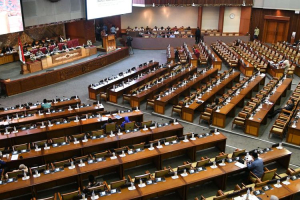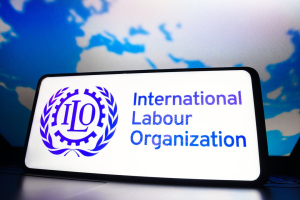BRIN - IAEA collaborate on nuclear technology to recycle plastic waste
The National Research and Innovation Agency (BRIN) of Indonesia, in collaboration with the International Atomic Energy Agency (IAEA), is developing Nuclear Technology for Controlling Plastic Pollution (Nutec Plastic) to tackle plastic waste problems.
Totti Tjiptosumirat, a Senior Nuclear Technology Expert at BRIN’s Center for Radiation Process Technology Research, said that the IAEA considers Indonesia a model nation in utilizing nuclear technology for plastic waste processing.
Consequently, Indonesia has been designated a demonstration country for the Asia-Pacific region under the IAEA's flagship environmental program, TC INS 1031, which focuses on mitigating plastic waste globally, including in Indonesia.
“TC INS 1031, related to NUTEC Plastic, aims to mitigate plastic waste or recycle plastics using nuclear technology, specifically Electron Beam Machining (EBM),” Totti said in Jakarta on Saturday, July 20, 2024.
As part of the collaboration, the IAEA will provide BRIN with a 2.5 MEV Electron Beam Machining (EBM) machine. This equipment will not only facilitate plastic waste recycling but also support various future research developments.
Internally, BRIN researchers from the Nuclear Energy Research Organization have been coordinating to determine the placement of the EBM at the BJ Habibie Science and Technology Area in Serpong, South Tangerang, Banten.
The goal is to maximize the infrastructure for research purposes, industrial development, economic scaling, and production in Indonesia.
Petra Salame, Senior Program Management Officer at IAEA, expressed the agency’s support for Indonesia in developing the electron beam facilities for polymer modification.
Salame highlighted Indonesia’s significant progress in both upstream recycling components and downstream marine monitoring.
"We hope Indonesia will continue its efforts and achieve sustainable success," she said.
Tita Puspitasari, Head of the Center for Radioisotope, Radiopharmaceutical, and Biodosimetry Technology Research at BRIN, and National Project Coordinator for IAEA’s RAS 1024 project, emphasized BRIN’s longstanding commitment to the NUTEC Plastic program.
“This waste management must be combined with advanced nuclear technology. While plastic waste is inexpensive or of little value, nuclear technology can add significant value to this waste within the industry, making it commercially viable,” Tita said.
The EBM facility is anticipated to be a critical asset in accelerating the downstream process of products developed under NUTEC Plastic. It can serve as a substitute to claim that the products are green, as the EBM process uses no chemicals, operates at room temperature, and is straightforward.
This collaboration marks a significant step forward in Indonesia’s efforts to tackle plastic pollution through innovative and sustainable technologies.
Tag
Already have an account? Sign In
-
Start reading
Freemium
-
Monthly Subscription
30% OFF$26.03
$37.19/MonthCancel anytime
This offer is open to all new subscribers!
Subscribe now -
Yearly Subscription
33% OFF$228.13
$340.5/YearCancel anytime
This offer is open to all new subscribers!
Subscribe now






